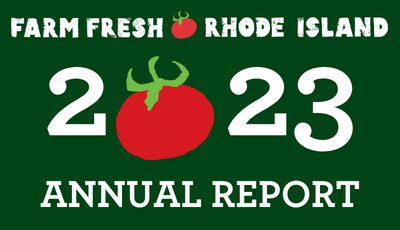MISSION
We envision a New England abundant with diverse family farms and fertile soils, with locally and honestly produced foods and flavors at the heart of every table. Originally inspired by a Brown University student project, we were founded in 2004, incorporated in 2006, and received 501(c)3 nonprofit status in 2007. Today our mission is as it was from the start — to grow a local food system that values the environment, health, and quality of life of the farmers and eaters in our region.
Increasing Community Access to Local Foods
All of our programs — Farmers Markets, Farm to School and Community Education, Bonus Bucks, Hope's Harvest, Market Mobile, and Harvest Kitchen's culinary job training program — increase the availability and affordability of locally sourced foods, reduce food waste on local farms, and share knowledge of how fresh, local ingredients fit into a healthy lifestyle.
Building Strong Local Food System Enterprises
Our food system enterprise services — include Market Mobile, Hope's Harvest, and Harvest Kitchen’s food production and processing — create transparent systems and market-based opportunities for farmers and producers, as well as increase farm viability and financial sustainability for our organization.
A “50 by 60” Vision
In 2014, we adopted the collaborative "50 by 60" Food Vision from Food Solutions New England, as one of the guiding visions for our organization. The regional plan has a bold goal of building capacity for the Northeast region to produce 50 percent of its own food by 2060. Right now, 90 percent of the food we consume comes from outside of the region.
We work toward this “50 by 60” goal in many ways.
• Helping our community grow healthier by increasing physical and economic access to fresh food
• Strengthening local farms and food businesses by offering more ways to reach consumers
• Improving the impact of food production and distribution on our environment
• Preserving farmland and agricultural and culinary knowledge by helping local farms thrive
• Connecting eaters with the vast network of RI, MA, and CT businesses sourcing local foods
• Invigorating our local economy with our new agricultural campus in Providence

